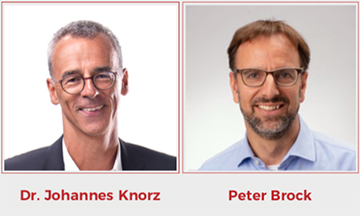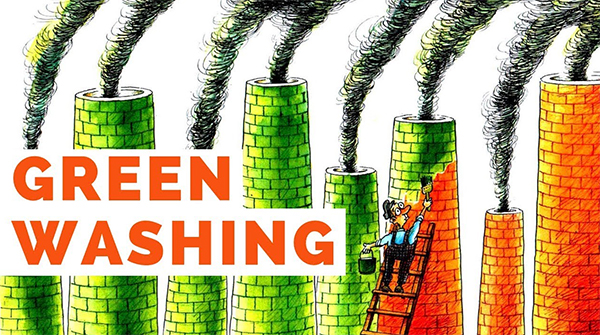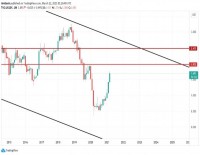|
Case Study: A Family Office Going 100% Impact 
Dr. Johannes Knorz Dr. Johannes Knorz, LL.M. (Sydney) CEO/CIO of Germany based family office 4L Vision GmbH. He has been working as a legal consultant in all areas of corporate finance and M&A for more than twenty years. 4L Vision is highly committed to impact investing; not only as an investor itself in all asset classes, but also on an intermediary level such as the German Federal Initiative for Impact Investing (Bundesinitivative Impact Investing) and the international impact investment network Toniic. Currently, 4L Vision is about to establish a Multi Family Office together with other families. Peter Brock
Peter Brock was Executive Director and Leader Family Office Services in Europe at EY (Ernst & Young). Since 2018 he is active as a self- employed family officer / strategic adviser and investment committee Chairman, tasked with setting-up and managing a family office and the family governance for entrepreneurial families. He is one of the founders of the “Bundesinitiative Impact Investing”. Dr. Johannes Knorz: We started as a normal family office investing in various asset classes. We then moved into “green” investments and ESG integration where we then realized that ESG is actually only half way. In the ESG investment paradigm, sustainability is like a side effect: You don’t want to do any harm, but the business itself is not necessarily focused on impact, whereas an impact investor also wants that the business itself is trying to make the world a little bit better ecologically, socially or from a governance point of view. At the moment, we are doing more and more pure or deep impact investments and aim to reach 100% impact investments in all asset classes. This is our approach. We are also active on the primary market in direct investments, actually financing companies and businesses, both start-ups and later stage. While it’s quite easy or possible to buy shares in listed companies in all industrial sectors, regions and currencies to build an impact portfolio, you are then, however, actually just swapping your money on the secondary market, and that does not really create impact. In our view, the real impact is if you invest fresh money into an impact venture as a direct investment. This additionality and intentionality of specifically targeted impact investments are a key principle for us and other 100% impact investors. Peter Brock: As you can imagine, a transition to 100% impact is a process over time. As a first step the 4L Vision family office has decided to develop a portfolio of listed stocks from the MSCI World Index that have been specifically selected to be highly impactful based on their own research, while also doing direct investment in private equity and startups. Dr. Johannes Knorz: Right now, we have about 25% of our assets in seventeen direct shareholdings in companies. Here we have a European focus. Another roughly 25% is in private debt, 25% in real estate and the remaining 25% in listed stocks. In real estate we also follow impact investing principles, focusing both on green buildings that are mainly used for socially responsible applications. Matthias Knab: Is there a big momentum towards impact in Europe? Peter Brock: Johannes and I actually met at the foundation workshop of the German Federal Initiative for Impact Investing (Bundesinitiative Impact Investing) which is currently being set up in Germany to organize and grow the community of impact investors. We have worked together on various projects since then. Germany is probably lagging behind the Anglo-American world, but this is partly due to our different and very well establish social welfare system. Currently, however, there is a very good momentum in the German market overall and the impact investing ecosystem is slowly improving. We are also working on offering impact advisory services combined with the specific equity portfolio approach based on 4L Vision’s screening process to other investors and family offices that want to go the same route. Matthias Knab: You said you want to go 100% impact investing in all asset classes. When you do your new asset allocation, do you have a target return and how do you select your investments? Dr. Johannes Knorz: The benchmarking is pretty straightforward. There are a lot of publications and discussions about benchmarking and performance measurement in impact investing, but 4L Vision really keep this simple. As a long term investor we are following the principle that truly sustainable business models will also produce higher financial returns over time. So the benchmarks are the respective standard stock market benchmarks. Peter Brock: The family office has developed its own analytical stock picking process to choose impactful companies over and above normal ESG criteria. The basis is an analysis of fundamental company data, in combination with micro and macro economic data and chart analysis. On top of that their own impact selection process starts with a negative and positive screening along the 17 SDGs (sustainable development goals by the United Nations) supported by Okom Research, Sustainalytics or other tools. A sustainability committee then selects the current stock allocation on a 4 week rolling basis. Dr. Johannes Knorz: Actually, the impact portfolio performed much better than the benchmark in 2019 – we were up 16% in the equity portfolio. Matthias Knab: What is your selection process on the impact projects or venture capital side? Dr. Johannes Knorz: Basically it’s a deal-by-deal decision. It’s solely due diligence to look at the business model, it’s supporting certain impact entrepreneurs, and it’s deciding what kind of theme, what impact do we want to achieve along the lines of the SDGs, the United Nations’ Sustainable Development Goals. For example, 4L Vision is invested in a company that does sustainable insulation work for housing. Clearly, impactful corporate ventures and 4L Vision definitely want to support those. So, for us it is a normal direct investing due diligence process. And I would say - in my history as a corporate financier – it is traditional entrepreneurial venture capital investing - but with a very, very clear impact focus. We are also investing in a company for cancer medication. Another example is the food company Veganz, a very well-known case in Germany, several impact investors have invested here. Veganz is developing quite well, we invested there in a very early stage. That ?s quite a typical example for our direct investment, which is of course a bit risky sometimes. At the moment, it’s simply our money so we are free to take a bit of a higher entrepreneurial risk. Together with another entrepreneurial family we are currently planning to set up an impact multi family office with the intention to assist other families in setting up and executing their impact investment strategies. In that case, surely, we will only enter into direct investments and venture capital investing, if they expressly desire this and if it fits their risk appetite. Peter Brock: You asked about the momentum in Germany – for now, 4L Vision is one of some 20 or so single-family offices here that seriously approach impact investing. But, as Johannes explained, having gone through various iterations of specialization in ESG and impact, the aim is to help making this approach more common by building up a multi- family office which invites other families, other family offices and additional private capital to the impact investing market and share those investment deals, be they direct, liquid or illiquid. Matthias Knab: For a lot of impact investors, the impact measurement is quite important as well. That may be easier in some industries or in some companies and more of a challenge in others. How do you go about that? Peter Brock: We are very closely following the market for impact measurement, but as of now, there is still no standardized measurement process for impact investments, so impact is often measured and monitored on a case-by-case basis in relatively simple terms. 4L Vision has a clear view what impact they want to achieve, and so they will analyze and control each specific company’s impact accordingly: How much CO2 was saved? How many patients survived because of our medical innovations, etc. But increasingly there will be more providers with various impact measurement tools, so the solution offering will develop very quickly now. Matthias Knab: You mentioned the UN Social Development Goals, and indeed, many impact investors use them as guidelines or a compass for their impact investments. Do you focus on a certain SDGs or across the board? Dr. Johannes Knorz: That’s a good question. At the moment, we do not select or limit our investments through a focus on specific SDGs. Instead, we are rather looking if the specific offers or impact investment opportunities that are presented to us are really deep impact from our point of view or not. We also make a distinction if the company is really an impact company – are they really committed to solving a fundamental social, governance or ecological problem? – or is it only an ESG oriented company? We will then also look if there is a realistic chance to get a certain financial return, so it has to be a good investment for economic reasons as well. Matthias Knab: You said you met at the German Federal Initiative for Impact Investing. Can you give us an update on the current state and momentum in impact investing in Germany and Europe? Dr. Johannes Knorz: I think we are at the beginning, but impact in Germany and Europe is on a growth trajectory, there is a clear trend and it will become more relevant over time. However, we also believe that, at the moment, most of the offerings of investment products are not really impact, they are maybe ESG, or sometimes in the worst case just greenwashing. Peter Brock: That’s correct. Everybody says they now do impact, but if you look closely, the offering is often not real impact, which makes it difficult to find investment opportunities that comply with our strict criteria. Dr. Johannes Knorz: Right. Some investment funds for example may still invest in mining and such things. Impact has become the next big thing, so it is en vogue and chic, but to our minds, the real and deep impact investment approach is still at the very beginning if you like to execute it seriously. Peter Brock: We have already organized some family office roundtables under the umbrella of the German “Bundesinitiative” where we have been proven that there is a huge interest by family offices in Germany to attend and to learn more about real impact investing. Organisations like the impact investment network Toniic are also increasingly looking towards Europe and Germany to further expand their networks. Matthias Knab: In this switch now to 100% impact, do you have any recommendations for family offices that are considering doing the same, no matter where they are based? Dr. Johannes Knorz: It’s a journey for entrepreneurial families to start from their family values to their concrete investment principles. It certainly is helpful to find and team up with other similar minded investors that are aligned with the same interest, or groups and platforms like Toniic. The market is not totally ready yet and the banks are reluctant to integrate impact investing in their product offering. But there are players like us and a few others, very often NextGens, that push the matter. We are actually hopeful that this will succeed even in the short term, at least the mid-term, and that much more capital will be allocated to impact investment. After all sustainable impact investments actually produce a higher return over the long term than traditional investments. That’s how it should be and that can be proven in some markets already. | ||||
|
Horizons: Family Office & Investor Magazine
Case Study: A Family Office Going 100% Impact |
|





 RSS
RSS











